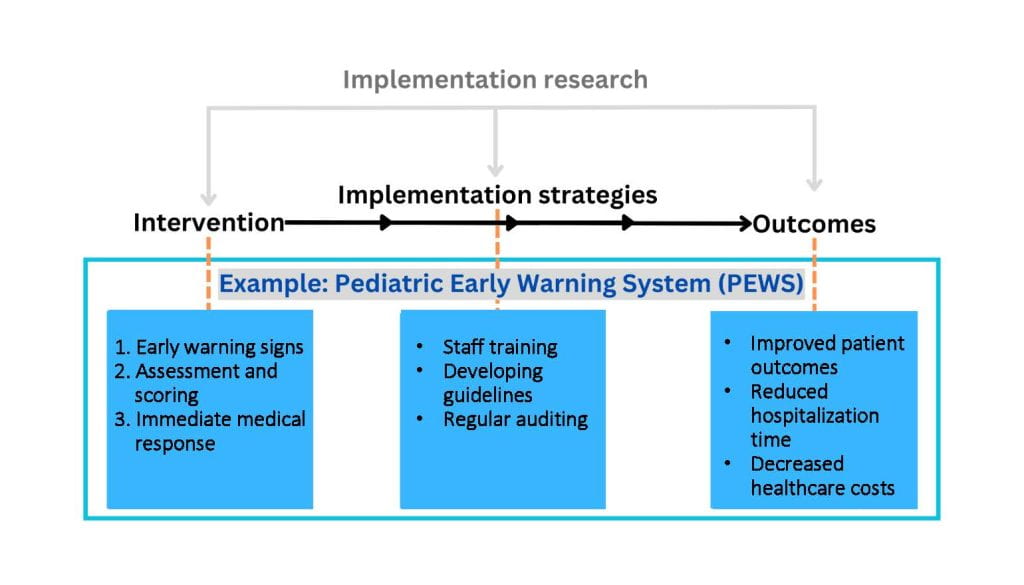Written by: Justin O’Hagan, MD candidate, University College Dublin, Ireland; and University College Dublin Scholar in the 2023 Institute for Public Health Research Program
This summer, I have taken a step into the world of Public and Global Health. As a trainee in the Institute for Public Health Summer Research Program at Washington University in St. Louis, I have had the opportunity to study a critical aspect of healthcare: ensuring that medical procedures remain effective over time, a concept known as sustainability.
A Global Health Project: The PEWS System
Under the expert guidance of my mentor Sara Malone, PhD, my project concentrates on assessing the sustainability of an intervention known as the Pediatric Early Warning Score (PEWS) in global cancer care. PEWS is a useful tool used by medical professionals to detect early signs of health deterioration in hospitalized children. My goal is to investigate how this tool is applied in different healthcare settings and how it maintains its effectiveness long-term.

Broadening my Horizons: Data and Biostatistics
During this process, I’ve worked with a broad survey dataset containing information from over 1,000 healthcare professionals from various hospitals and countries. Through this, I have honed my skills in biostatistics and developed a solid understanding of implementation science. This branch of science is concerned with how to effectively introduce evidence-based practices into regular healthcare routines.
An Eye-opening Talk: The Power of Implementation science
During the program, Malone give an insightful talk on this subject to the whole cohort. She underscored a two-pronged problem in healthcare: the need for high-quality, relevant evidence and the proper use of that evidence. She pointed out that, despite an abundance of research, only a small fraction (10-20%) of care provided is based on such evidence, while many patients (20-25%) receive care that might be unnecessary or even harmful. Her solution to this issue lies in implementation science, which develops ways to ensure the longevity and efficiency of beneficial practices in hospitals.
In Malone’s words, “Many lives could be saved if tools, strategies, and interventions already available for disease control in poor countries and settings were fully implemented and if barriers preventing adoption and scale-up were broken down.”
Looking Ahead Looking back on my time so far at Washington University in St. Louis, I am truly thankful for this opportunity to contribute to a field with immense potential to improve global health. As I venture further into this area, I’m optimistic that we can bridge the divide between introducing beneficial health interventions and maintaining them. After all, that’s what implementation science is all about: transforming research into actions that lead to better healthcare and improved patient outcomes.